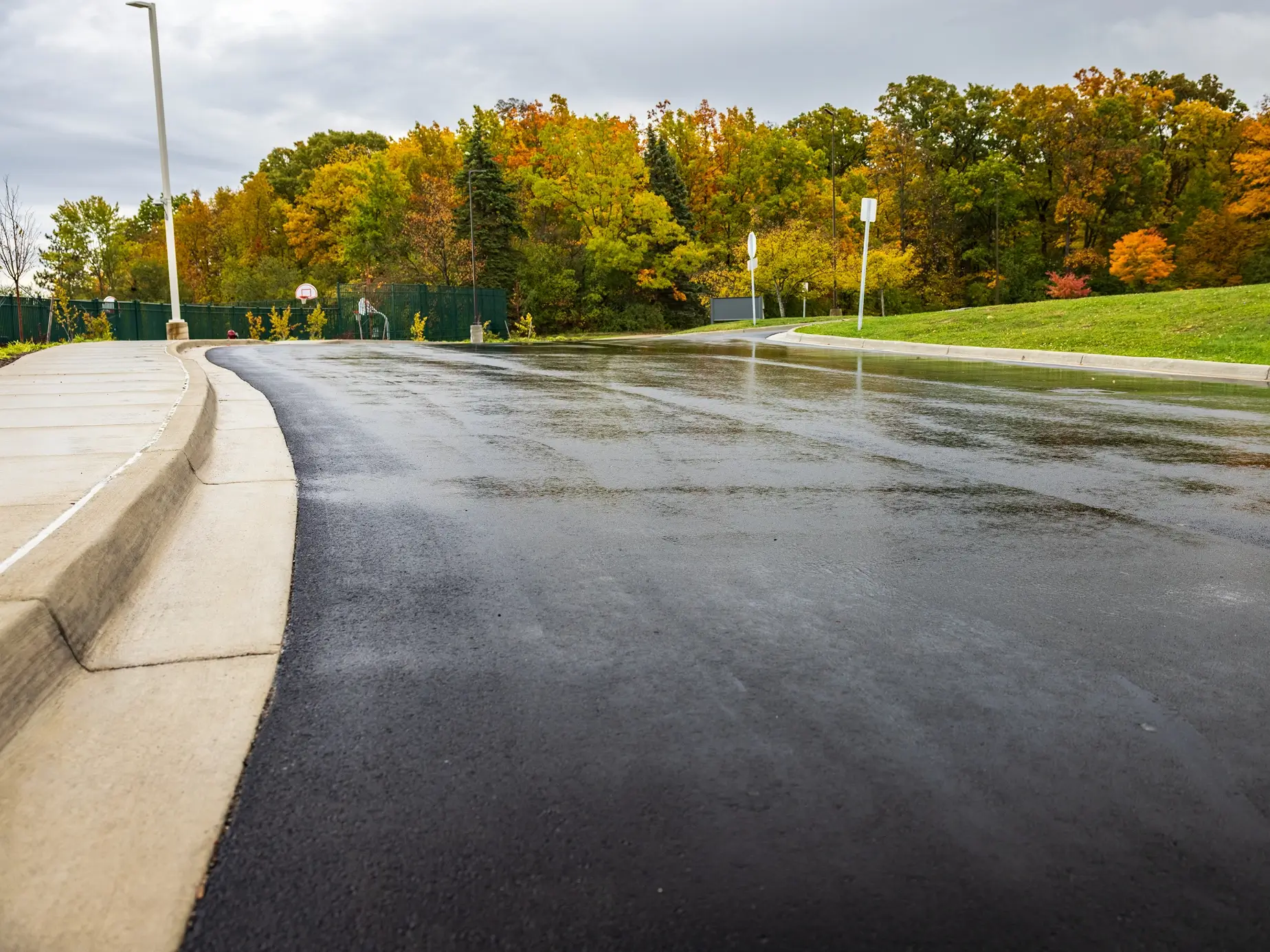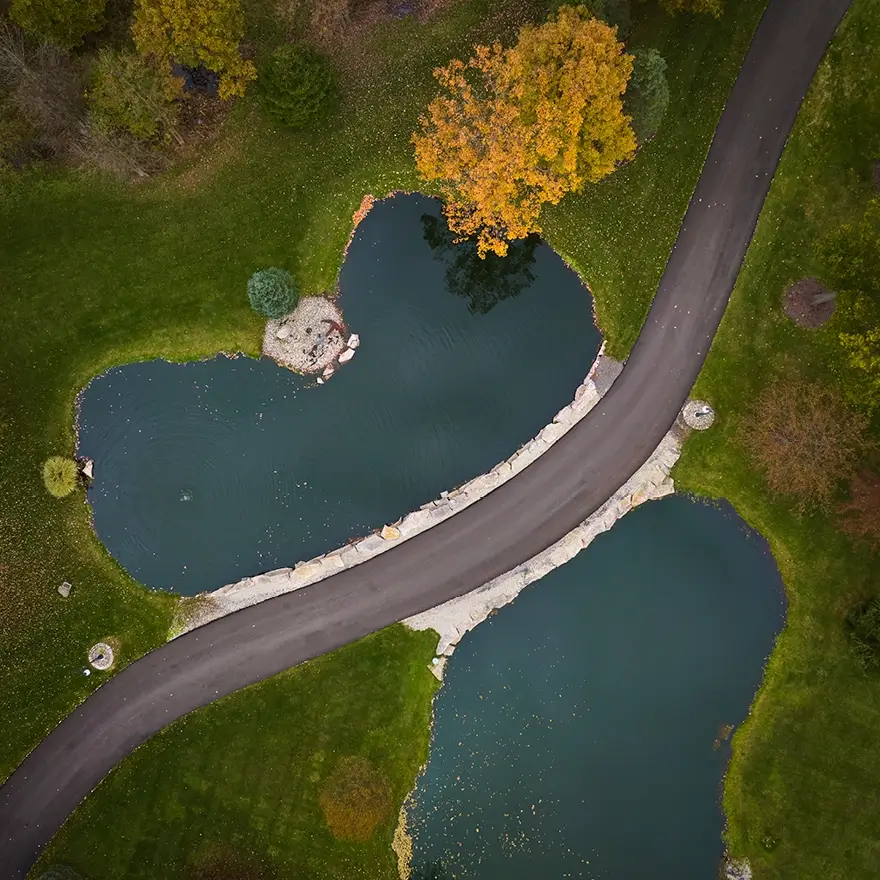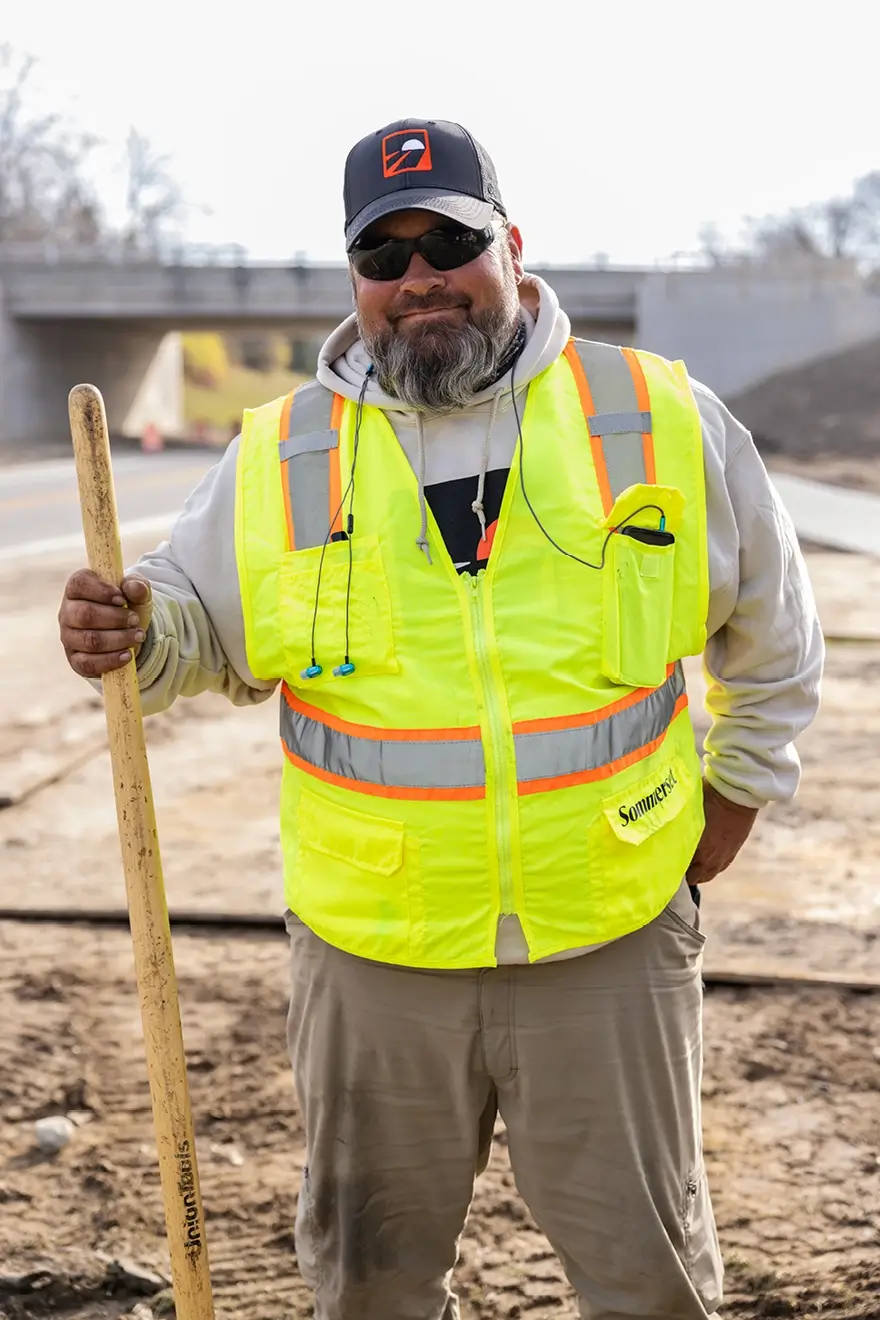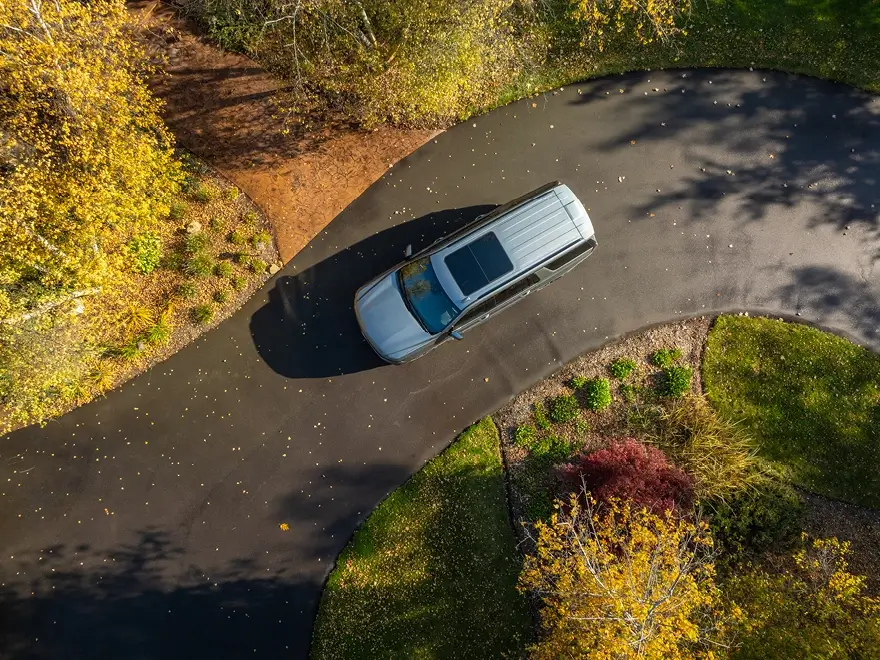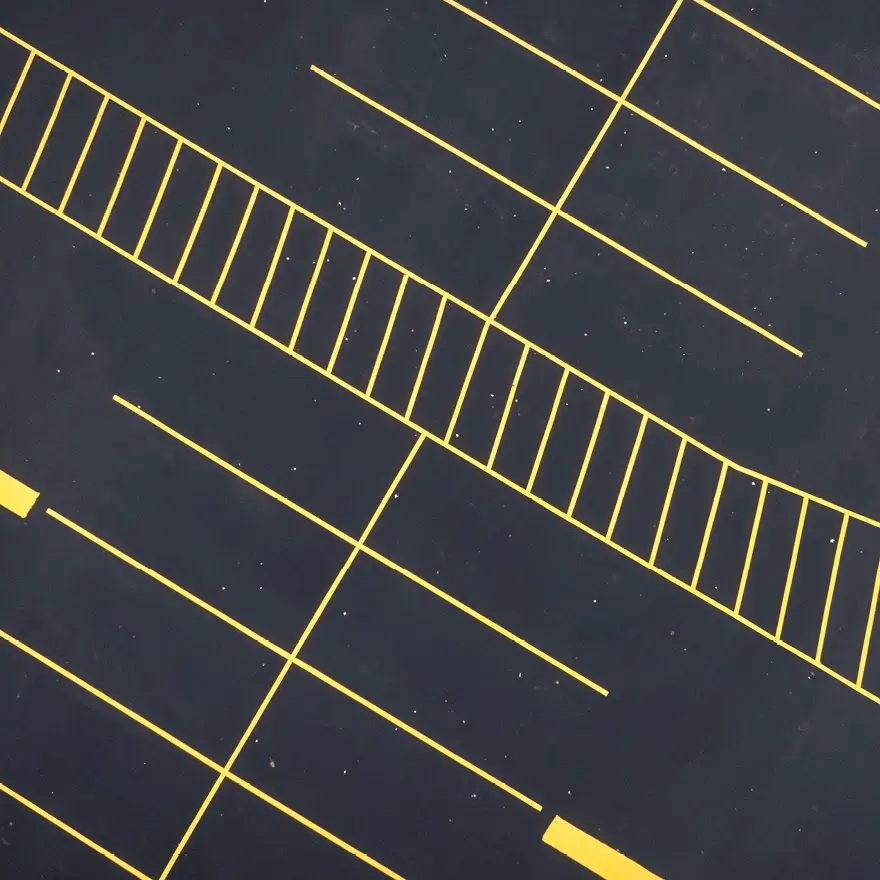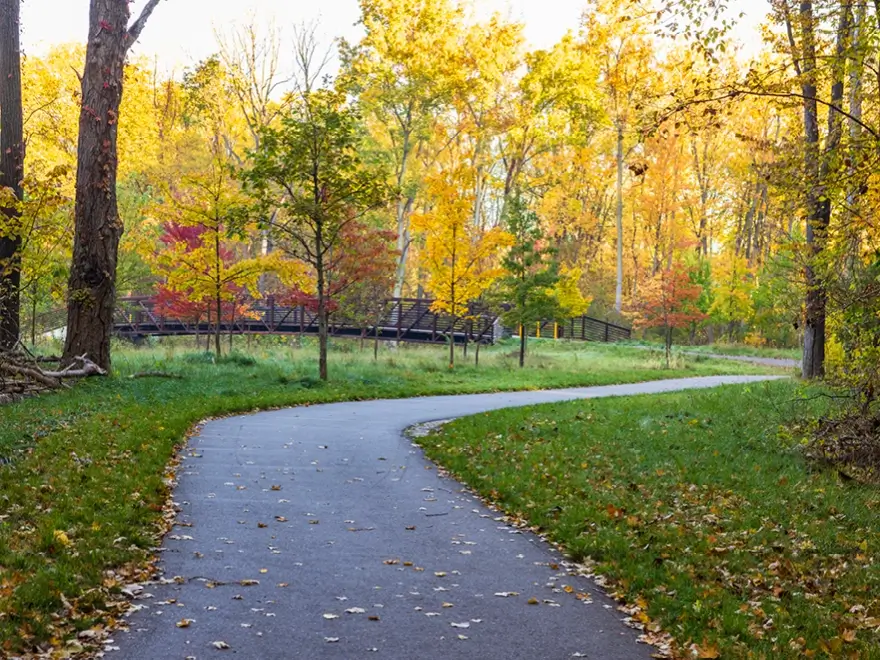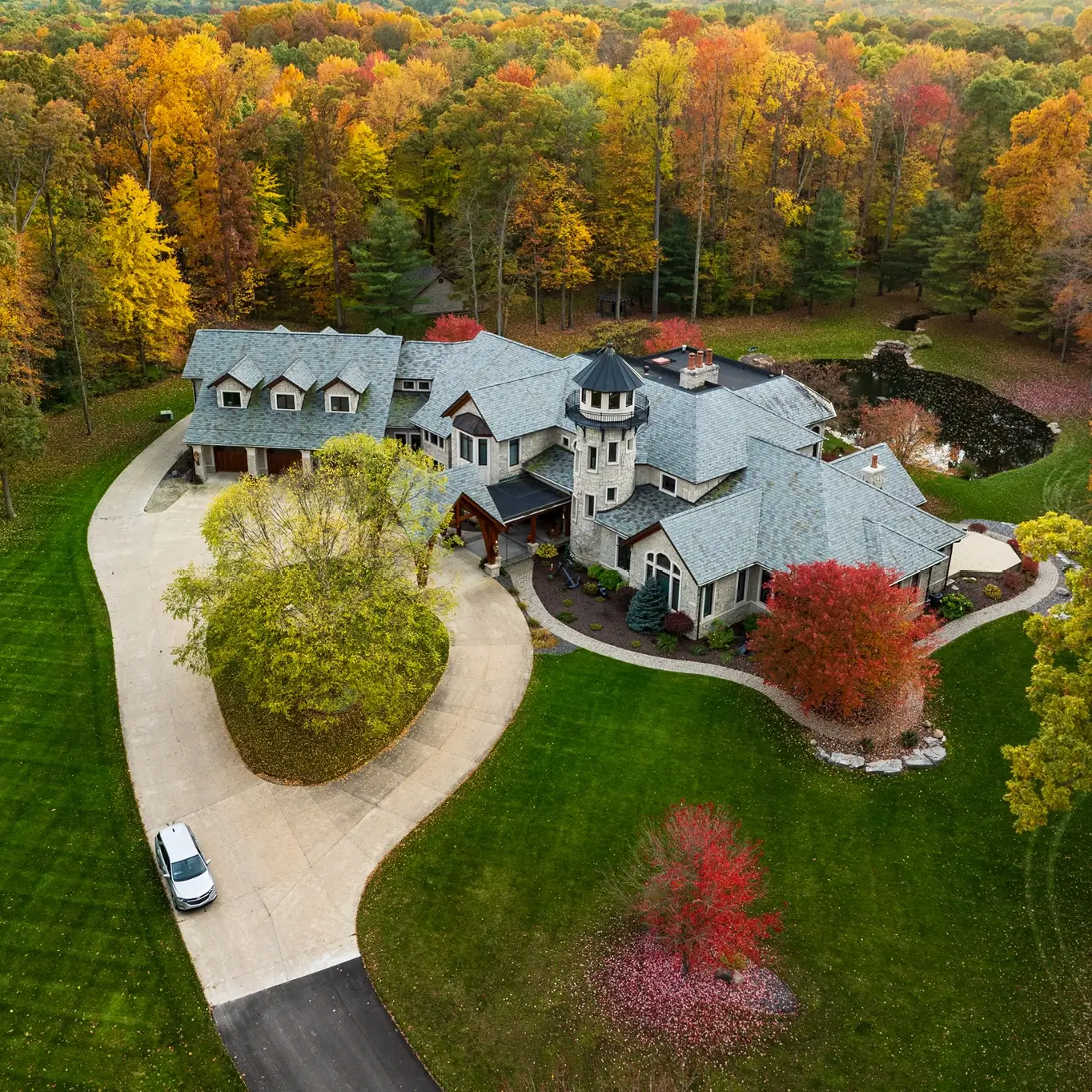
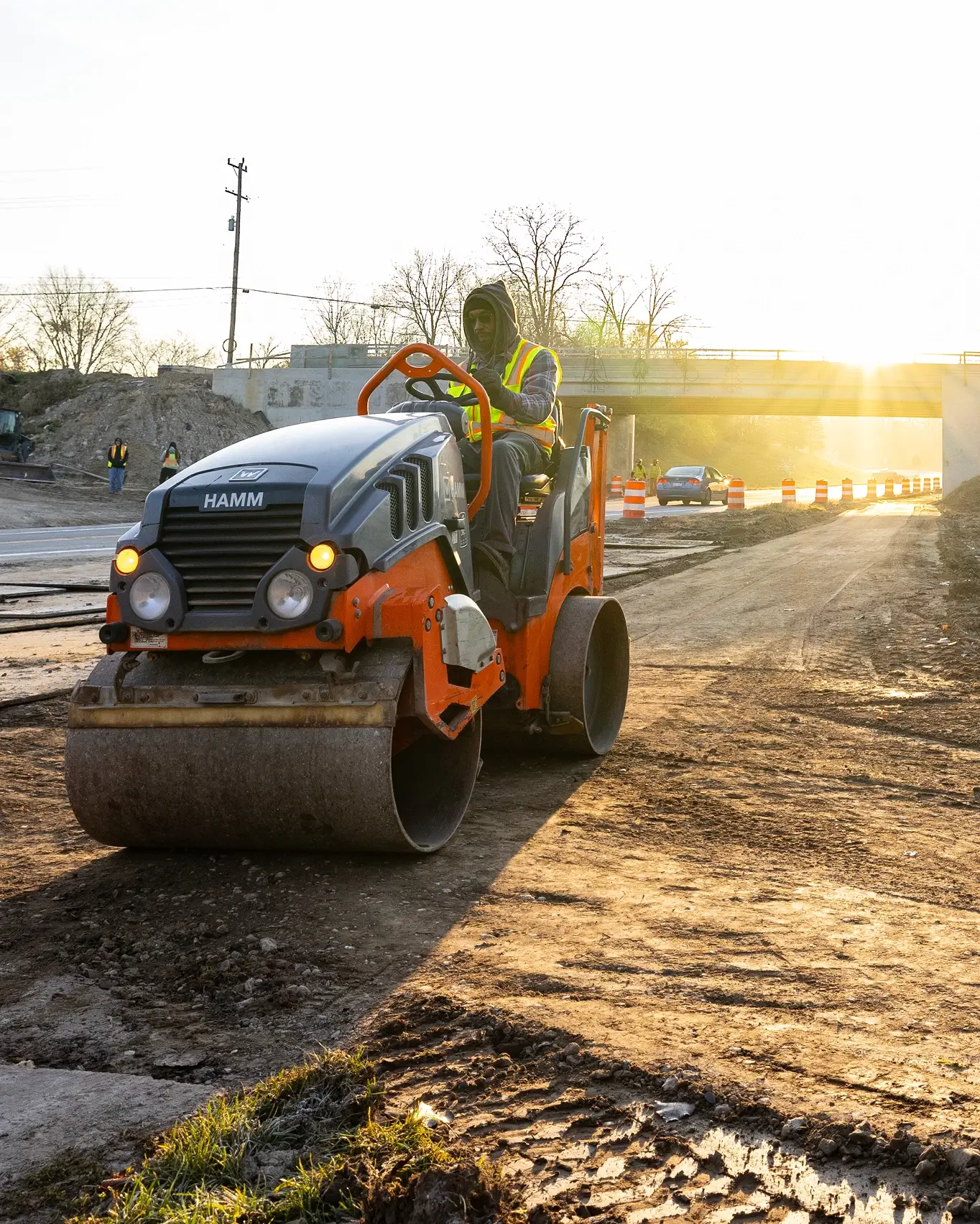
For concrete, that’s triple-underline true. You can have the best team, the best materials and equipment. But without intimate knowledge of the soil and geology, even perfectly poured pavement is a nightmare waiting to happen.
Because concrete has a high density and low plasticity, the stakes are higher than with asphalt. So when you want a light-gray surface that can withstand tremendous weight or feel cool beneath bare feet, you need a contractor who knows the terrain like the back of their hand.
For instance, the high clay content in Washtenaw County requires a unique approach to stabilization. Clay is nature’s silly putty, expanding and contracting dramatically in response to moisture. We’ve found it’s often necessary to remove 6–8 inches of clay and replace it with crushed concrete aggregate that’s machine-compacted; only then can we pour the concrete with confidence. This protective layer between concrete and clay lessens the possibility for concrete to crack due to the absorption of excess moisture in the clay, or the reverse, dry clay that absorbs the moisture from the concrete.
So how do you know which contractor is right for your concrete project? Ask what they’ll do by way of preparation before pouring concrete, but don’t breathe a word about dirt. If they talk enough about the local soil to make you wonder if they grew up on a farm, you’re in good hands. And if that dirt whisperer’s truck sports a road running toward a rising (or setting) sun, they’re with Sommerset Paving.
Read on to learn more about the concrete skills our team has cultivated since the first iPhone was born.
Michigan driveways are usually made of asphalt. But for those willing to invest in the lighter color, broom-finished surface and durability of concrete, Sommerset has you covered.
While asphalt is a more flexible and straightforward paving material to work with (not to mention less expensive), concrete has unique advantages. It’s more stable and can tolerate higher levels of load-bearing pressure; and when installed properly, concrete is less susceptible to erosion.
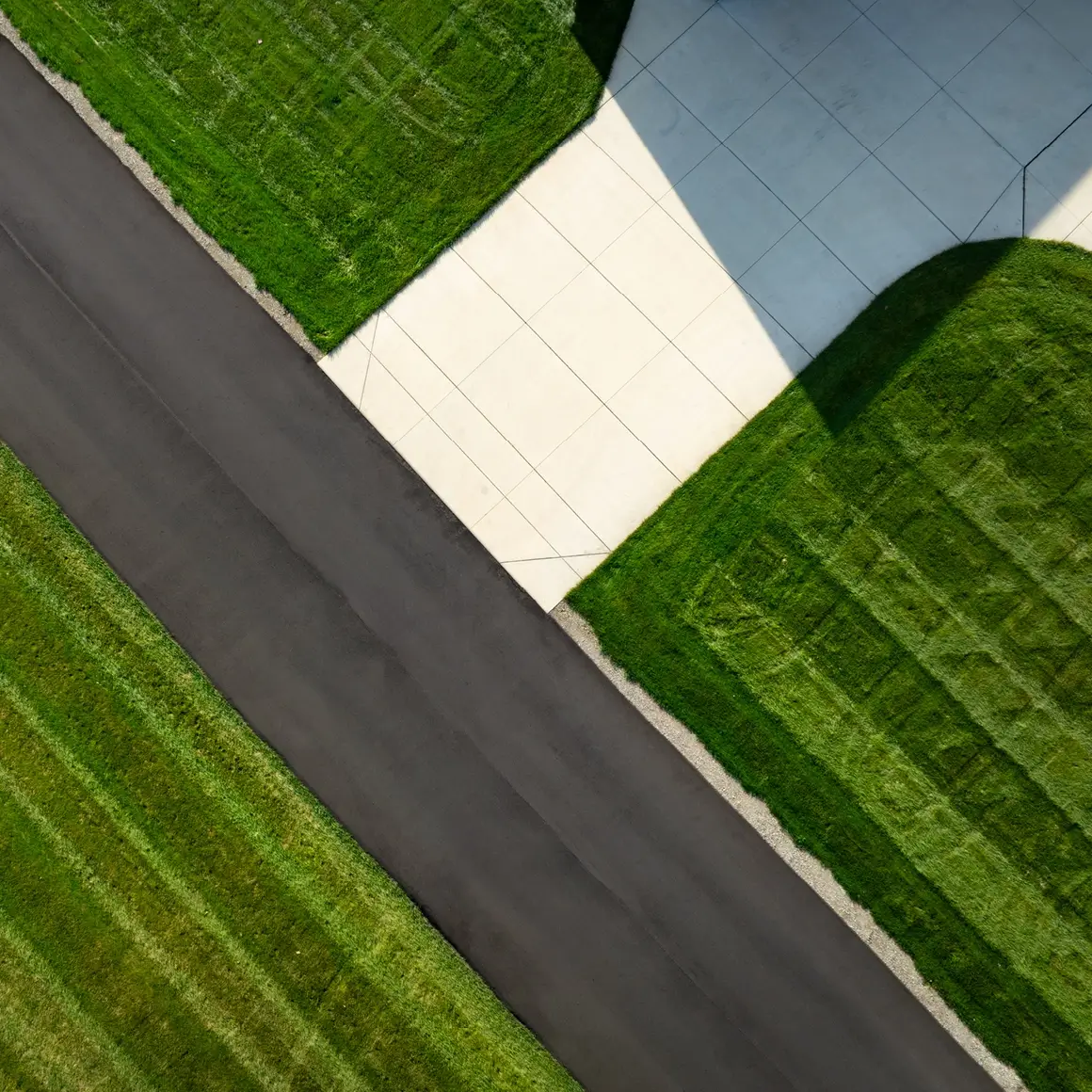
To ensure proper drainage for your sidewalk, we begin by leveling the ground and/or creating an even slope (grading). We then build forms to outline the pavement’s shape and pour professionally-mixed concrete.
As the concrete begins to set, we run a float over the top to drive stone aggregate down into the slab and bring sand and cement to the top.
Concrete finishing is an art. Photographers have their cameras, painters have their brushes and we have our brooms. Every walkway we build is rock-solid, dead-level and pleasing to the eye. The landscape is the frame, and two-legged or four-legged friends complete the picture.
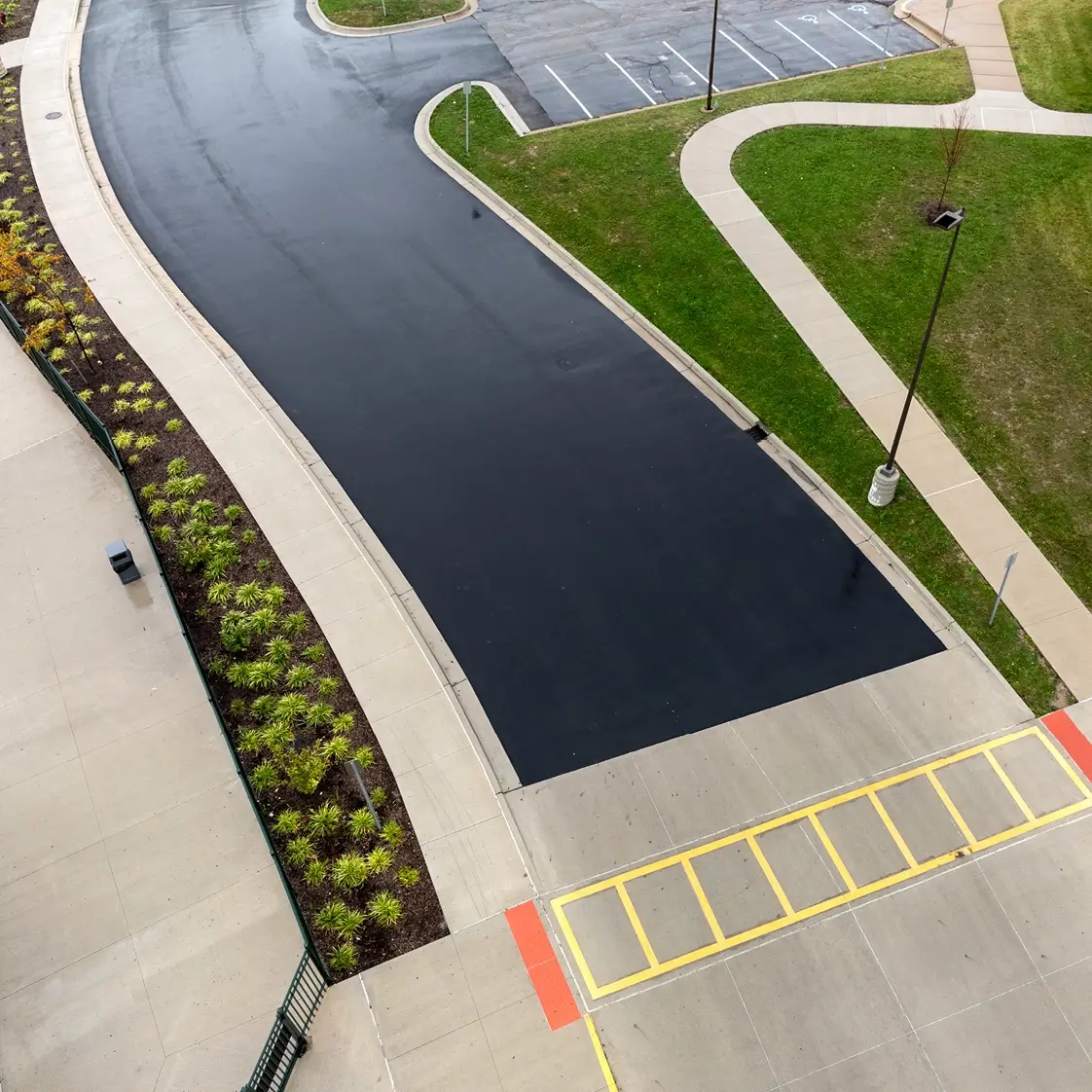
You’ll find concrete curbing along roadways and residential neighborhoods that have sidewalks. Concrete curbs should enable water to flow unimpeded into drains. That’s why a properly built curb is beefy, extending 12″ under the surface and an additional 4″ exposed on the surface. This type of curbing stabilizes the asphalt or concrete pavement that’s poured alongside it.
You only see asphalt curbing in parking lots, and we don’t usually recommend it. Yes, asphalt is much less expensive than concrete curbing. But asphalt curbs are easily damaged. They aren’t anchored to the ground and snow plow blades can easily bump them out of place. In the long run, they can cost much more than concrete curbs.
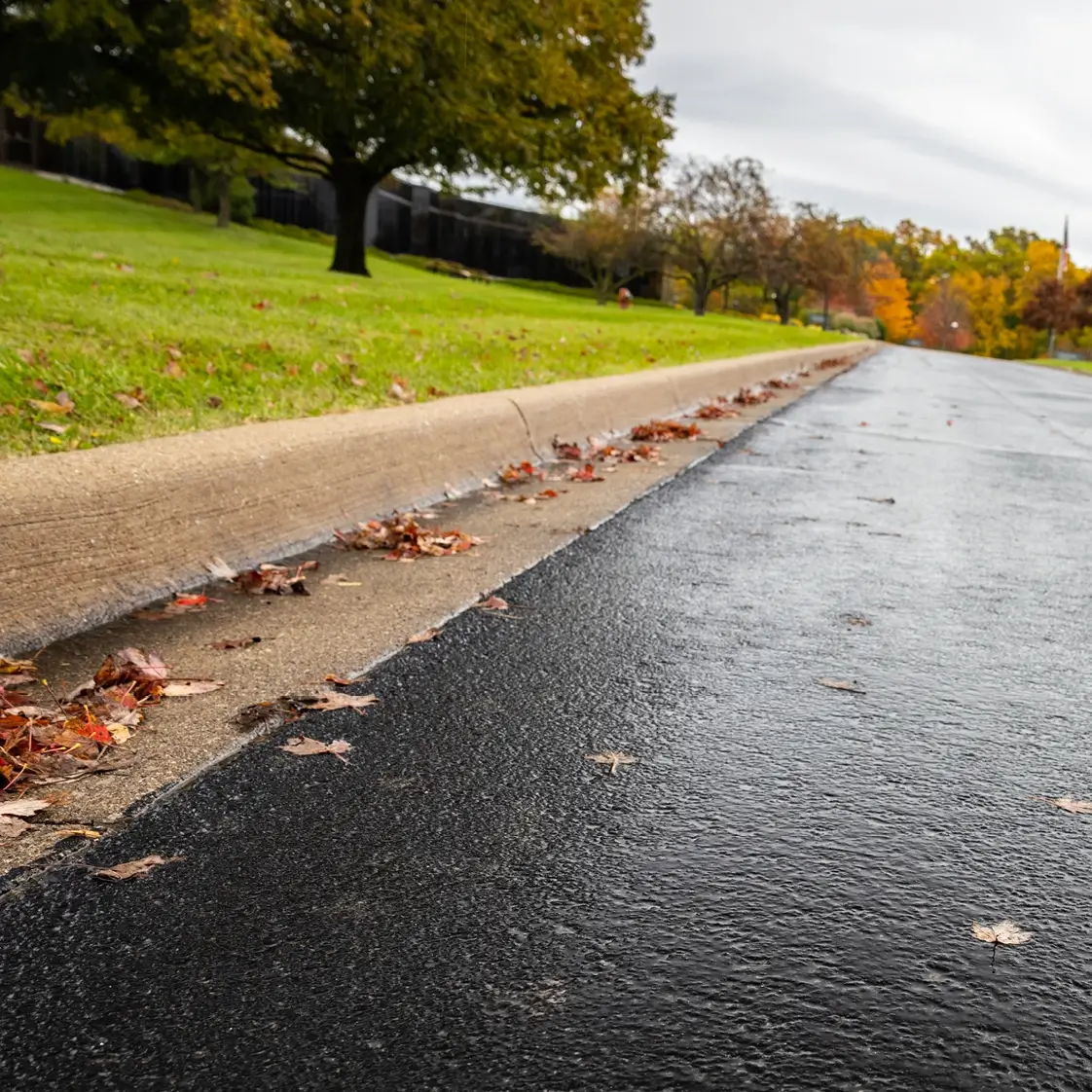
Municipal paving requires a list of bona fides and a price that maximizes a taxpayer’s dollar. Commercial jobs require building under traffic most of the time and are time-sensitive 101% of the time. And nothing’s more personal than your own driveway.
We’re here to make sure the roads, streets and sidewalks of our local areas bring you safely home for many years.
Get a free quote today, or explore the links below to learn more about how we approach projects like yours.
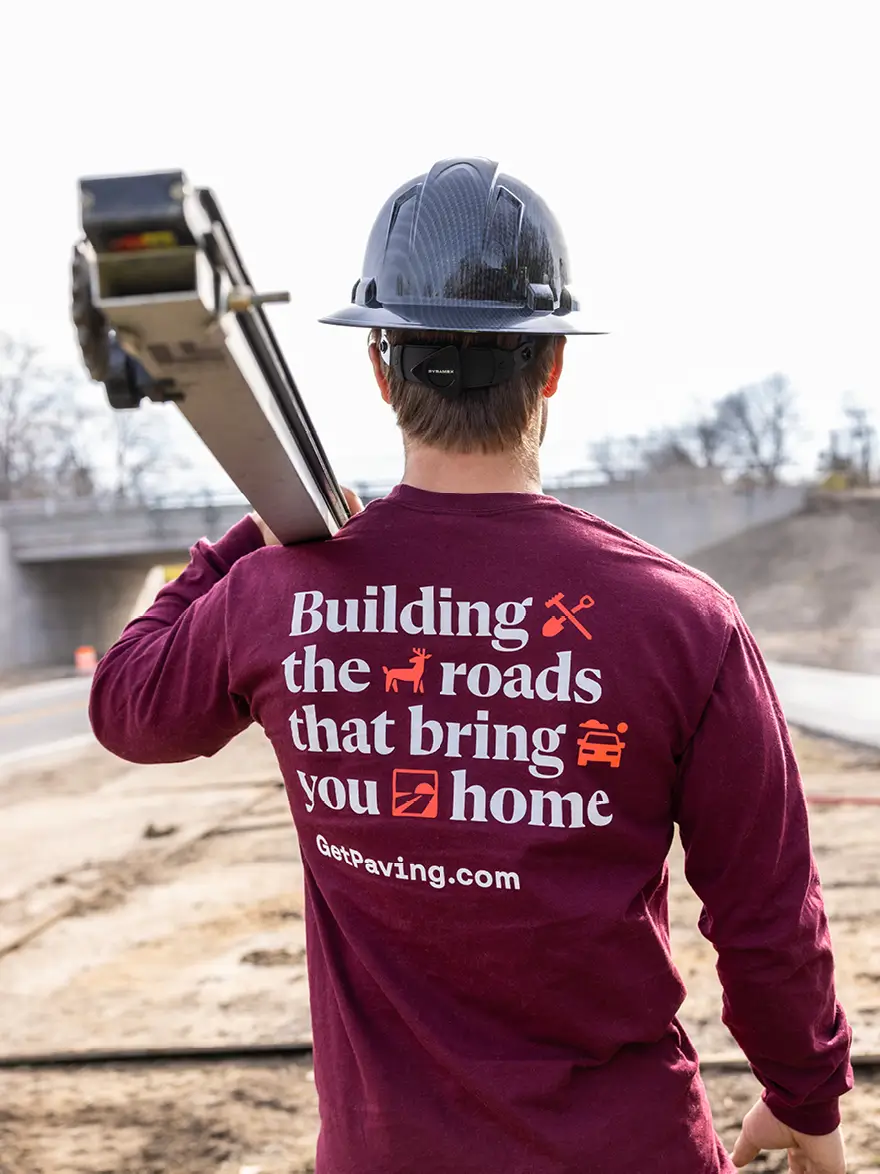
Other Services We Offer
Q: Are you concrete or asphalt specialists?
A: Yes. If you can pave with it, Sommerset can pour and finish it. For jobs of any size from county roads to state highways, bike paths, parking lots, driveways and more. And we’re constantly honing our approach because we believe “good enough” isn’t good enough; and the moment anyone says they’re done learning, they’re just plain done. Ultimately, our commitment to innovation means long-lasting value for your investment.
No matter the paving substrate and terrain, we apply the same exacting standards every time. Check out the pages below to learn more about our range of services.
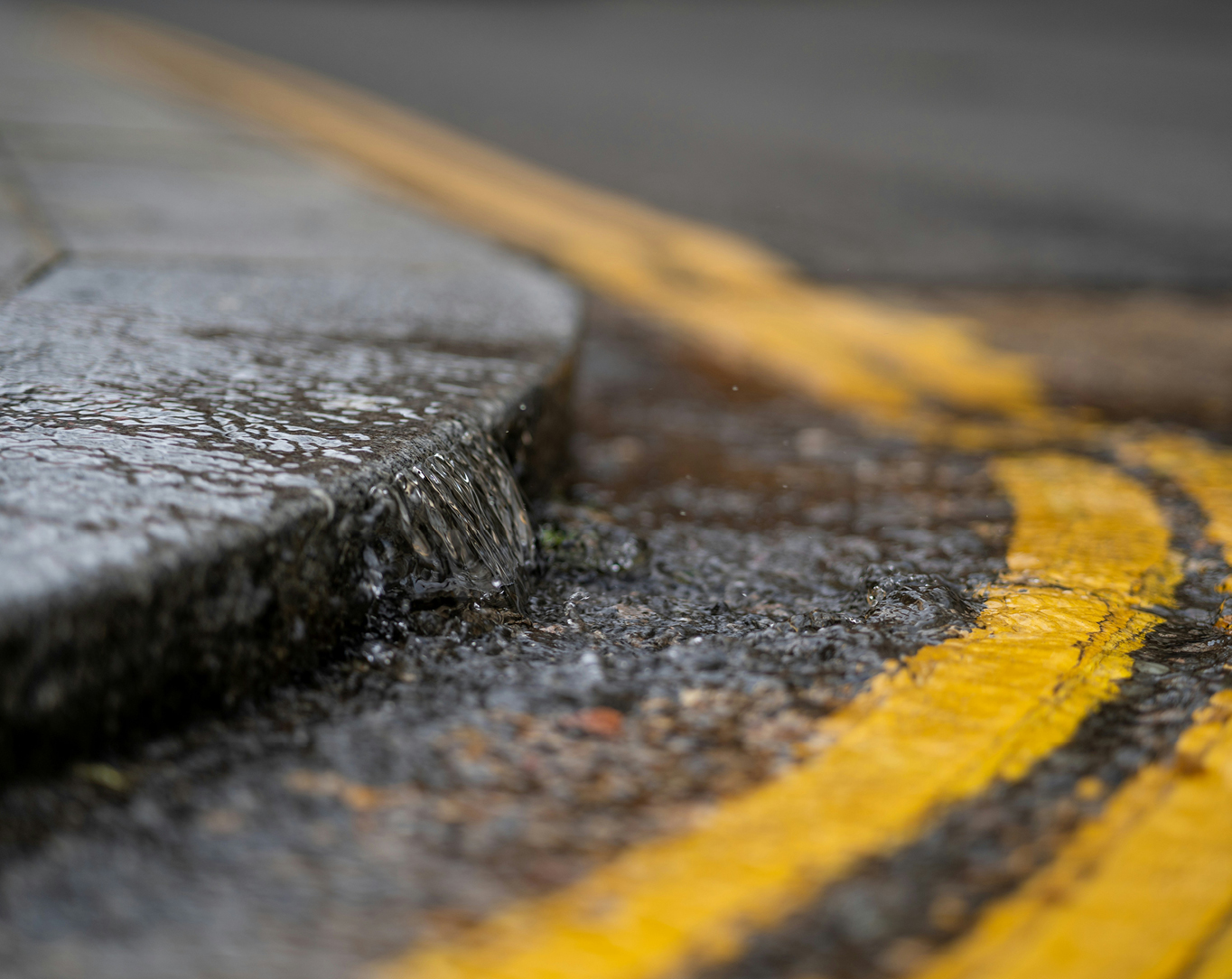
Imagine spending a pile of money on concrete pavement, only for it to crack like a shattered plate in a few years.
Maybe the surrounding property has poor drainage. Maybe the concrete wasn’t thick enough to handle tons of daily pressure from trucks and heavy machinery. Or maybe the crew treated tolerance requirements as suggestions, and the surface is covered in little valleys that gather moisture and turn into chasms.
Some concrete pavers value volume over quality and take shortcuts to finish the job early and move on to the next. They’ll employ low-quality materials or inexperienced crews that aren’t up to the task.
At Sommerset, the concrete we pour meets even the tightest of tolerances. It suits the soil and the climate. Water rolls right off. The pavement stands firm for 25 years or even longer before it needs repairs. And at that point? If you still own the same property or home, hello equity: your pavement has paid for itself and then some.
If you’re in the market for rock-solid concrete that’s made to thrive in southern Michigan, you know what to do.
